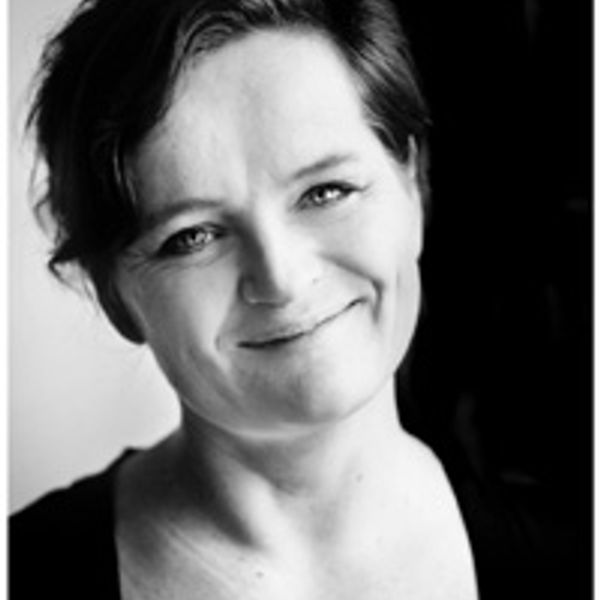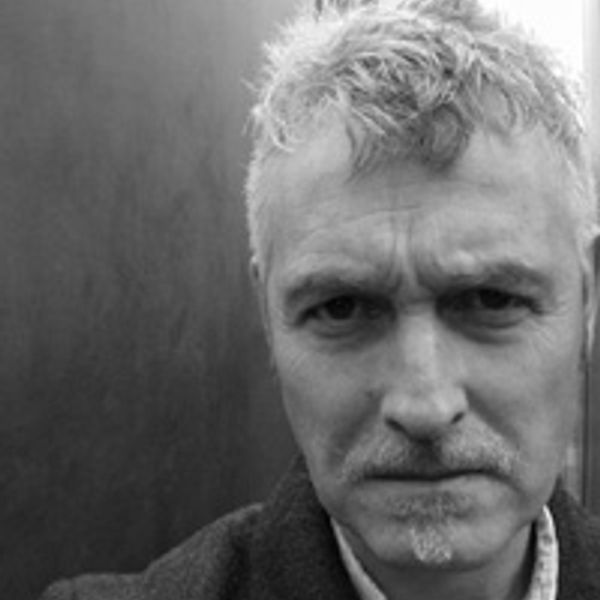Lia Purpura, Wasp Nest (detail), featured in AGNI 102
The Wadden Sea
When I think back on Fanø, it’s mostly the Wadden Sea and the many shipmaster cottages. In the springtime the oyster catcher would fly low over the thatched roofs, and I would go down to the tide pole to see how high above my head the water would have come if I’d been there in 1852. Sønderho, where I lived, was beautiful, even if they did call the place the World’s End. There were many artists and musicians living in that little community. There were rich people too, though I didn’t know any of them, and then there were the locals and the town alcoholics. Like rooks, they tended to attract each other so that certain parts of the town were clusters of people with indistinct pronunciation and chinking carrier bags. Those are the kinds of things I remember, and then the multi-allergic woman riding around the little lanes and unmade roads on that wheelchair-cum-scooter of hers. Rumor had it she could predict people’s futures, and she wore a mask over her face. From the mask a tube went down to a machine that provided her with oxygen and at the same time filtered impurities from the air. She looked like a UFO that had landed on Earth and had now found a way of getting around. Like a lot of other people in Sønderho, she was from Copenhagen. She had moved to Sønderho because the area’s sparse vegetation made the air purer, and because it’s good for the sick that the Wadden Sea is like one big, moist lung.
It was because of Sønderho’s genuine feel, its unspoiled surroundings, and the healthy outdoor life that we moved there. My mom was an actress and had worked a few jobs before being struck by a kind of depression that put a stop to everything. We lived in a two-room apartment in Nørrebro, just the two of us, and it was hard for me to cope, especially on the weekends. I persuaded Mom to visit the doctor and he gave her some pills that didn’t help. So it was a lady with long, flowing robes that convinced Mom that Sønderho was a good place to work on her depression, or Fear of Life, as they decided to call it. Mom was becoming more reliant on her medication. She needed deliverance so she cancelled the lease on the apartment. We had to get away from everything artificial. Copenhagen was one big artifact, she said. She was going to find herself, and I went with her.
She rented a house in Sønderho and hoped the clean air might help her get off the medication that Fear of Life was craving. And she actually did start feeling a whole lot better quite quickly and went around the sparsely furnished house teaching me to say the words pristine, Frisian, and Netherlandic. Shortly after, she had me enrolled in the school and herself in the local citizens’ association. Things were working out, and I would go running around the narrow lanes in the town, looking in at the windows with their porcelain dogs that sat looking out. Either that or I would be hiding out behind the garden fences. On Sundays we ate stewed apples with macaroons and whipped cream at the neighbor’s. Mom found friends, and at the local inn she became smitten with folk dance and the story about lacing the coffee with Brøndums Snaps because Rød Ålborg was for mainlanders.
And that was how Fear of Life after only a short time managed to get on the train from Copenhagen to Esbjerg. And it turned out able to sail on the ferry too, and then it got on the bus for Sønderho and rode the nine miles from the ferry to the World’s End. Someone must have given it the address, because it came right to our house and knocked on the door, and it was the kind of visitor who puts a foot in the door, barges in, and refuses to leave. It crawled into bed with my mom and went to the store for new supplies and then shut itself in and piled itself up in the shed so that after a few months I had to call my grandma.
I could tell Grandma was shaken up standing there amid all that medication out in the shed. She asked me how I could get my bike out without upsetting everything. I could tell she knew Fear of Life, and I could tell she knew it was a kind of fear that took in the whole of people’s lives and could make them forsaken wherever in the world. She was on the verge of crying, but she couldn’t, because it was my turn now to be small, so instead she stayed with us for a month. While Grandma was with us, she sat with my mom a lot and talked with her about the future and how we had to have one, and she walked me to school and sewed new covers for the chairs in the living room. After a while she got Mom eating and pulled me aside in the kitchen and said all things would pass in time.
She was right about all things passing in time, because Mom got better, so Grandma went home again. I could have gone with her, but I wouldn’t, because for one thing, Mom was trying to get into some good daily habits, and for another, she was having notions that the Wadden Sea had healing power. Anything that came into contact with the Wadden Sea was connected to that power. The notion made her get up early in the mornings, and it made her put on her gumboots and her overcoat. She would go down to the beach and look for fossilized sea urchins, and when she came home she would put them under her pillow. She found shells and made holes in them for turning them into mobiles. She twined dreamcatchers, fixed crab claws and dried seaweed to them, and hung them up over our beds. Everything had to be authentic, she said. It was artificiality that destroyed everything.
Almost every day she went down to the Wadden Sea and almost every day I went with her. We would walk along the unmade road from Sønderho to the beach, and sometimes we met the multi-allergic woman, whose breathing problems were especially bad in the wintertime. She would be sitting there under a big rain cape, and Mom would be funny and say, Here comes the pyramid tent.
One particularly cold and heavy day in February we met her just like that on our way out to the Wadden Sea. She had the mask over her mouth and a pair of big orange glasses just above it, so it looked like she was wearing a visor. Her wheelchair thing was a mass of tubes and gadgets that made her alien in her surroundings. I could hear machines wheezing and pulling at her, and I could see how her fingers controlled the switches and joysticks while Mom was talking. Mom was talking about how she wanted to learn to make lace and how she had discovered the coordinates of what she called the Wadden Sea Void. The multi-allergic woman listened, and Mom explained while I went on looking at the woman’s peculiar craft, which I’d also seen could ride over dunes. When I looked up I saw I’d been caught in the woman’s gaze above her mouth mask. Her eyes sank into mine, and I couldn’t look away because of her eyes, which filled up the orange glasses completely. I can’t say why, but I think she knew. Sometimes you change things you remember when you know what happened later, but what happened was that Mom and I carried on our way.
We scrambled over the reeds that lay stacked in bundles on the other side of the dike and went down onto the beach. We walked through the fillet of crushed razor shells and out onto the moist sand. After we’d walked for a while, Mom started looking for small splinters of amber in the furrowed sand. While she looked, I stood with my hands in my pockets watching the Germans farther up the beach. They were flying kites and parachutes, or squatting in the washed-up seaweed as though they’d just gotten out of their cars to pee, and I felt removed from them.
When we’d gone farther out into the Wadden Sea, Mom asked me if I knew where the Wadden Sea ended and began. The Wadden Sea has its own fluid transitions, but in the summer it was easy to tell the difference between land and sea. In summer the weather was fine and the breakers would be clearly visible, but in winter it was harder. One can get helplessly lost in the Wadden Sea. The local children knew, just like children in Sweden know that one can get lost in the forests, and children from inland Jutland have all heard about the great void that exists at the center of the rye fields. At certain times of day the Wadden Sea is like a big, wet sheet of gray cardboard that you couldn’t cover with block letters even if you had the rest of your life. Everyone knew that, yet Mom stood there poking her finger into it.
I said to her that we mustn’t forget to go back in. She said there was a place where you went from the artificial world into a life-giving zone. She had chosen to call the zone the Wadden Sea Void. That was the place we had to find, and she had the coordinates: a diagonal from Ribe Cathedral down through Mandø Island up to Sønderho and back again to the Cathedral. It was a triangle like the one off Bermuda. Somewhere inside, everything artificial about us would be taken away and what remained would be our more distinct selves.
We walked for a long time looking for the place. When we no longer could see the dunes, a bank of fog came and settled around us. I think we stopped going straight and started going in circles instead. Mom was in front, and I was behind her and lost my bearings and didn’t know what was inside or what was out. I looked for the kites, the parachutes, and the Germans, but saw nothing. I looked to see the direction the birds were flying, but it seemed random. All I wanted were warm, dry socks and gumboots, or my bed. After a while, Mom stopped and stood still with her back half-turned to me. She stood there with her eyes closed and her hair down. Then she pointed into the fog. She pointed into it like it was a piece of psychology. She said the Wadden Sea was an image in the mind’s eye, and that she was glad I wanted to go with her into it.

Dorthe Nors
Dorthe Nors (b. 1970) is one of Denmark’s most acclaimed new writers. She is the author of three novels and has contributed to several anthologies. Her latest book, a collection of short stories entitled Kantslag (Karate Chop), appeared in 2008. (updated 8/2009)

Martin Aitken
Martin Aitken (b. 1961) lives and works in rural Denmark. His translations of Danish literature have appeared or are forthcoming in Calque, The Literary Review, PRISM International, AGNI, Boston Review, and elsewhere. (updated 8/2009)
